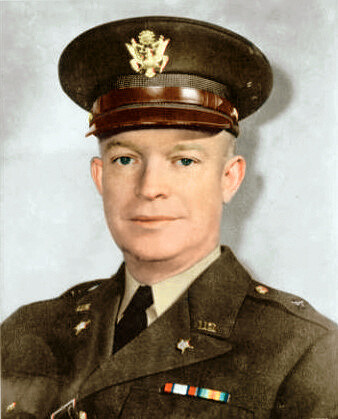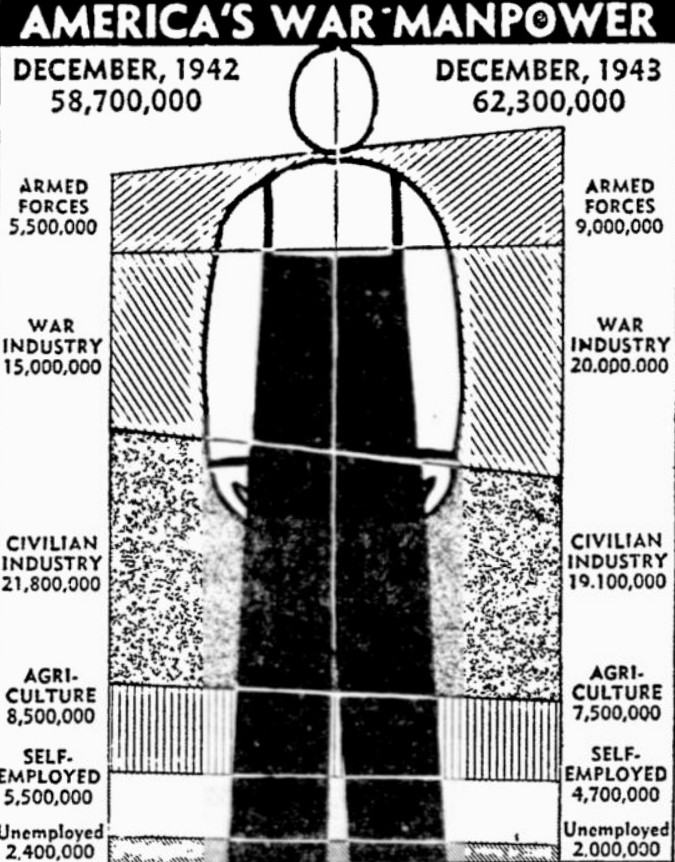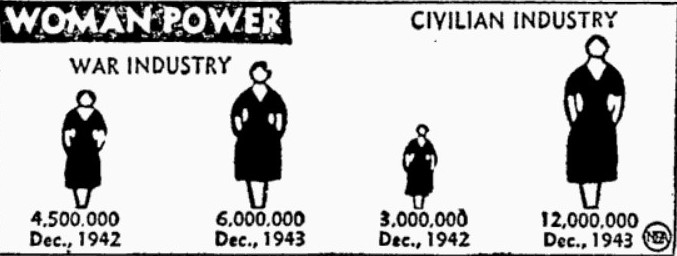America moves to regain control of Mediterranean
Army spokesman in London calls attack start of real U.S. war in European Theater
By Edward W. Beattie, United Press staff writer
London, England –
U.S. troops descended on the coasts of North and West French Africa today in a nutcracker operation designed to drive the Axis from Africa, regain control of the Mediterranean and open the way for an attack northward to the European coast.
The operation was of vast scope, involving U.S. land, air and naval forces, British naval and air forces and a small group of British infantry.
Initial announcements did not specify the landing points of U.S. forces, but Vichy reports that a huge Allied battle squadron had been observed steaming east of Oran, on the central Algerian coast, indicated that Algeria, Tunisia – immediately at the rear of the Axis positions in Libya – Morocco and Senegal may be involved.
‘The real American war’
A U.S. Army spokesman asserted that:
This is the start of the real American war in the European Theater of Operations.
He said that:
The action far overshadows any American action in this hemisphere previously and will be carried out with the utmost vigor.
This marks the turning point from the training point to actual fighting.
The spokesman said that the action, timed to coincide with the defeat of Marshal Erwin Rommel in Egypt, was designed to drive the Axis completely out of Africa. Asked if it would be called a “pincer move,” he said:
A pincer is only two parts – this is in many parts.
French reaction awaited
There was no immediate word as to the reaction of the French forces in the African colonies.
However, it was not doubted that resistance would be encountered. The French African governors and commanders have been engaged in almost constant consultation and preparation for such a move for more than a month and they are in a position to dispose powerful forces.
The chief French concentrations are believed to be at Dakar, the strategic Senegalese port on the West African port, at Casablanca on the northwest Moroccan coast, at Oran and Algiers in Algeria and at Bizerte in Tunisia.
Have 10,000 men
It is believed that France has about 100,000 men, many of them native troops and not too well-equipped, in Africa. Their Air Force has been estimated at 500 planes but this may be an overestimate. The French are known to have few tanks and probably not too ample supplies of munitions. For nearly two years, they have been largely dependent upon skimpy supplies of oil and gasoline from the United States.
A major factor was expected to be the action of the French Fleet which is not divided in two fairly equal parts between the Metropolitan French base of Toulon and various African points.
The largest French African naval concentration is at Dakar which has the large (but damaged) 35,000-ton battleship Richelieu, believed to be in position to be fired as a fixed fortification.
Has three cruisers
In addition, there are three cruisers known to be at Dakar (the Gloire, Montcalm and Georges Leygues), three destroyers (Le Fantasque, Le Malin and Le Terrible), about 12 submarines, the supply ship Jules Verne, three minesweepers, 10 corvettes and some light units.
At Casablanca, the French are believed to have another cruiser and about three destroyers. It is believed the French have other light cruiser and destroyer forces at bases on the Mediterranean coast of Africa.
Vichy attitude unknown
What attitude the Vichy government would assume in the face of a gigantic and all-out Allied offensive to take over French Africa was not known. Informed sources frankly said that the era of “sweetness and light” with regard to U.S. relations with Vichy was over and added the suggestion that Vichy did not count too much in the present operation.
Greater interest was directed to the question of what forces the Axis might be able to hurl into the struggle and how quickly they could be assembled.
Aid by Rommel doubted
With Rommel teetering on the verge of a knockout at the Egyptian-Libyan frontier, it was not believed that he was in a position to spare many troops for the Western Mediterranean.
The Germans had been reported rushing four new divisions to Africa via the Athens-Crete-Libya air route early this week, but it was doubted that so large a movement could have been completed yet.
The effect of the Allied invasion upon the Russian front was still uncertain. Russian sources have insisted that at least 30 or 40 divisions must be pulled out of the Eastern Front to affect the Red Army’s operations favorably and it was not known whether Adolf Hitler would divert troops in that quantity to Africa.
Axis radio jittery
However, the Axis radio recently displayed an extreme case of jitters over the possibility that the Allies would take over North Africa and use it as a base to strike at Italy, generally agreed to be the weak spot in the Axis structure.
Allied military strategists admitted that the African front was not the classic second front desired by Russia but said that it was not only the best that could be provided at the moment but promised the biggest immediate returns and the greatest potential drain on German strength.
There were reports from Switzerland of air alerts along the bomber route to Northern Italy and it seemed likely that the RAF might be carrying out another attack on such targets as Genoa, similar to the powerful blows struck at this are coincident with the launching of Lt. Gen. Bernard L. Montgomery’s offensive in Egypt.
Seek support of French
Every effort was being made to obtain the support of the French, both the French military and the French populace, but there was no overoptimism about the prospects of no French resistance. By leaflets dropped from places and by constantly reiterated broadcasts, the French were being told in the words of President Roosevelt and Lt. Gen. Dwight Eisenhower, the U.S. Commander-in-Chief, that the operation was the initial step to the liberation of France.
Should the Germans attempt to rush support to Africa by pulling out their occupation troops in the occupied area of France, it was suggested they would leave the coast open to assault by Allied troops operating across the English Channel.
Nazi move doubted
However, it was regarded as doubtful that the Germans would risk moving troops out of occupied France because of the rising hostility of French workers toward their effort to draft them for labor in German war factories. Vichy also, it was noted, has apparently felt it the better part of valor not to attempt to use outright force in fear of inspiring an active uprising among the French populace.
There was no certainty here that actual landing operations were being made at Dakar which is generally regarded as the strongest French base in Africa. It was noted that if the northeast and north coasts of Africa fall to the Allies, Dakar will be cut off and forced to succumb in time without a costly frontal assault.
It was agreed generally here that the landings in Africa are only the initial step in a carefully-integrated offensive plan designed to confront the Axis with increasingly difficult strategic problems.


